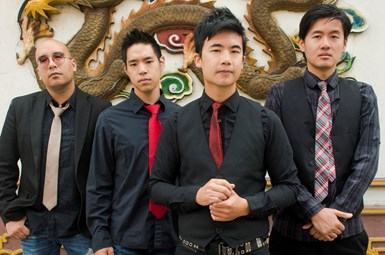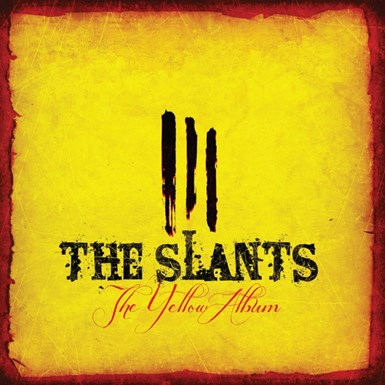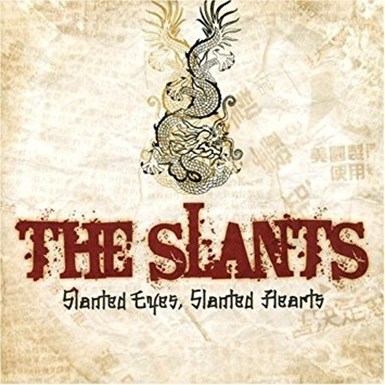Timothy J. Lockhart and Paris Thompson *
In a highly anticipated ruling, the U.S. Supreme Court has declared unconstitutional the provision in Section 2(a) of the Trademark Act, 15 U.S.C. § 1052(a), that prohibits registration of disparaging marks. Matal v. Tam, ___ U.S. ___, 137 S. Ct. 1744 (2017). The court’s unanimous decision[1] permits an Asian American rock group to register THE SLANTS as a mark for its live musical performances. Also, the decision will likely result in the re-registration of several REDSKINS marks owned by the Washington, D.C., professional football team and canceled by the U.S. Patent and Trademark Office (USPTO).
Section 2(a) states that the USPTO may not register any mark that “[c]onsists of or comprises . . . matter which may disparage . . . persons, living or dead.” 15 U.S.C. § 1052(a). Based on that prohibition, the USPTO cancelled six REDSKINS registrations and refused to register THE SLANTS although its SLANTS decision was reversed by the U.S. Court of Appeals for the Federal Circuit. (The Tech Law Letter reported on those developments in the following issues - Summer 2014, Spring 2014, and Winter 2016.)
The government’s appeal of the SLANTS decision brought the issue to the Supreme Court. In his opinion for the court Justice Alito agreed with the argument of Simon Tam, founder and lead singer of The Slants, that the disparagement provision violates the free-speech clause of the First Amendment. To set the context, the court briefly discussed the USPTO’s two-part test for disparaging marks: first, what is the “the likely meaning of the matter in question” (quoting Trademark Manual of Examining Procedure [TMEP] §1203.03(b)(i)); and second, “whether that meaning may be disparaging to a substantial composite of the referenced group” (id.). Applying that test, the USPTO found that THE SLANTS referred to and disparaged people of Asian ancestry.
The court said Tam had chosen the mark for those very reasons: “to ‘reclaim’ and ‘take ownership’ of stereotypes about people of Asian ethnicity” (citing In re Tam, 808 F.3d 1321, 1331 (Fed. Cir. 2015) (en banc), as corrected (Feb. 11, 2016). The court noted, “The group ‘draws inspiration for its lyrics from childhood slurs and mocking nursery rhymes’” and has chosen album names such as The Yellow Album and Slanted Eyes, Slanted Hearts (id.)
Before discussing the First Amendment issue, the court ruled on Tam’s contention that because its language refers to “persons,” the disparagement clause does not apply to groups such as Asian Americans, only to specific natural or juristic persons. Tam did not raise this issue below, and the Supreme Court ruled on it only because accepting Tam’s argument would have left “the First Amendment question for another day.” To avoid that outcome, the court considered the argument but rejected it as a too-narrow reading of the law, stating that a mark that disparages a substantial composite of a group would necessarily disparage many “persons.” The court also noted that the statute prohibited disparagement of “institutions” and “beliefs,” 15 U. S. C. §1052(a), thereby encompassing, for example, political and religious groups and corporations and unions. If Congress had meant to limit the meaning of the statute as Tam suggested, the court said, “it would have been easy to do so.”
Next the court addressed the government’s three arguments for constitutionality: “(1) that trademarks are government speech, not private speech, (2) that trademarks are a form of government subsidy, and (3) that the constitutionality of the disparagement clause should be tested under a new ‘government-program’ doctrine.” With regard to the first point, the court held that because trademarks are chosen by their owners and may be used without being registered with the USPTO, trademarks are private, not government, speech. Given the contradictory nature of different trademarks owned by different owners, the court said, “[i]f the federal registration of a trademark makes the mark government speech, the Federal Government is babbling prodigiously and incoherently.” The court distinguished the Walker case in which automobile license plates were held to be government speech because the government chose and controlled the messages on them and was closely identified with the plates. Walker v. Texas Division, Sons of Confederate Veterans, Inc., ___ U. S. ___, 135 S. Ct. 2239 (2015)
Regarding the second point, the court noted that the USPTO does not pay money to trademark applicants; rather, applicants pay significant fees to register marks and then to maintain and renew those registrations. The court dismissed the government’s third point by noting that it rested largely on “two cases involving a public employer’s collection of union dues from its employees.” Those cases, the court said, “occupy a special area of First Amendment case law” and “are far removed from the registration of trademarks.” In support of its position the court cited, among other cases, Texas v. Johnson, 491 U.S. 397, 414 (1989) (“If there is a bedrock principle underlying the First Amendment, it is that the government may not prohibit the expression of an idea simply because society finds the idea itself offensive or disagreeable”).
Finally, the court considered “the question whether trademarks are commercial speech and are thus subject to the relaxed scrutiny outlined in Central Hudson Gas & Elec. Corp. v. Public Serv. Comm’n of N. Y., 447 U.S. 557 (1980).” But the court said it need not decide whether all trademarks, including mark such as THE SLANTS that express “a view about social issues,” are commercial speech. According to the court, the disparagement clause did not pass the Central Hudson test that “a restriction of speech must serve ‘a substantial interest’” and “must be ‘narrowly drawn’.”
In a separate opinion joined by Justices Ginsburg, Sotomayor, and Kagan, Justice Kennedy explained “in greater detail why the First Amendment’s protections against viewpoint discrimination apply to [THE SLANTS].” Noting that under disparagement clause “an applicant may register a positive or benign mark but not a derogatory one,” Justice Kennedy said that “[t]he logic of the Government’s rule is that a law would be viewpoint neutral even if it provided that public officials could be praised but not condemned.” In a short concurring opinion, Justice Thomas cited his continuing belief that “when the government seeks to restrict truthful speech in order to suppress the ideas it conveys, strict scrutiny is appropriate, whether or not the speech in question may be characterized as ‘commercial’” (quoting Lorillard Tobacco Co. v. Reilly, 533 U. S. 525, 572 (2001)) (THOMAS, J., concurring in part and concurring in judgment).
After the court’s decision the USPTO announced that the portions of TMEP § 1203 relating “specifically to examination under the disparagement provision no longer apply.”[2] Although the USPTO may eventually make more nuanced adjustments to its examination process, its elimination of a significant portion of the TMEP shows the effect of the Matal decision.
The parent company of the Washington Redskins filed an amicus brief in the Matal case, urging the court to strike down the disparagement clause. The Redskins’ suit against the USPTO is pending in the Fourth Circuit, which elected to delay proceedings until Matal was decided. Following the Matal decision, an attorney for the Redskins said the Supreme Court’s decision “resolves the Redskins’ longstanding dispute with the government.”[3]
More change under Section 2(a) may come. A suit pending in the Federal Circuit challenges the “scandalous” clause of Section 2(a), which requires the USPTO to refuse registration to any mark that contains “immoral, deceptive, or scandalous matter.” 15 U.S.C. § 1052(a). Depending on the outcome of that case, In re Brunetti, No. 15-1109 (Fed. Cir. Docketed Oct. 28, 2014), which involves a denied application for FUCT as a trademark for clothing, the USPTO’s registration procedure could substantially change again. The Federal Circuit has ordered the Brunetti parties to submit a supplemental briefing explaining how the Tam decision affects the constitutionality of the “scandalous” provision, and the intellectual property community will follow that case with anticipation to see what else the future holds for trademark law.
[1] Justice Gorsuch did not participate in the consideration or decision of the case.
[2] United States Patent and Trademark Office, “Trademark Alert: New Examination Guide Issued on Section 2(a) after Matal v. Tam,” June 26, 2017, https://content.govdelivery.com/accounts/USPTO/bulletins/1a57a0f (accessed on July 5, 2017).
[3] Adam Liptak, “Justices Strike Down Law Banning Disparaging Trademarks,” The New York Times, June 19, 2017, https://www.nytimes.com/2017/06/19/us/politics/supreme-court-trademarks-redskins.html (accessed on July 5, 2017).
The Slants perform "Sakura, Sakura" from their album Something Slanted This Way Comes:
https://www.youtube.com/watch?v=WC-4qQmGS_Q
* Many thanks to summer associate Paris Thompson for his contributions to this article.



